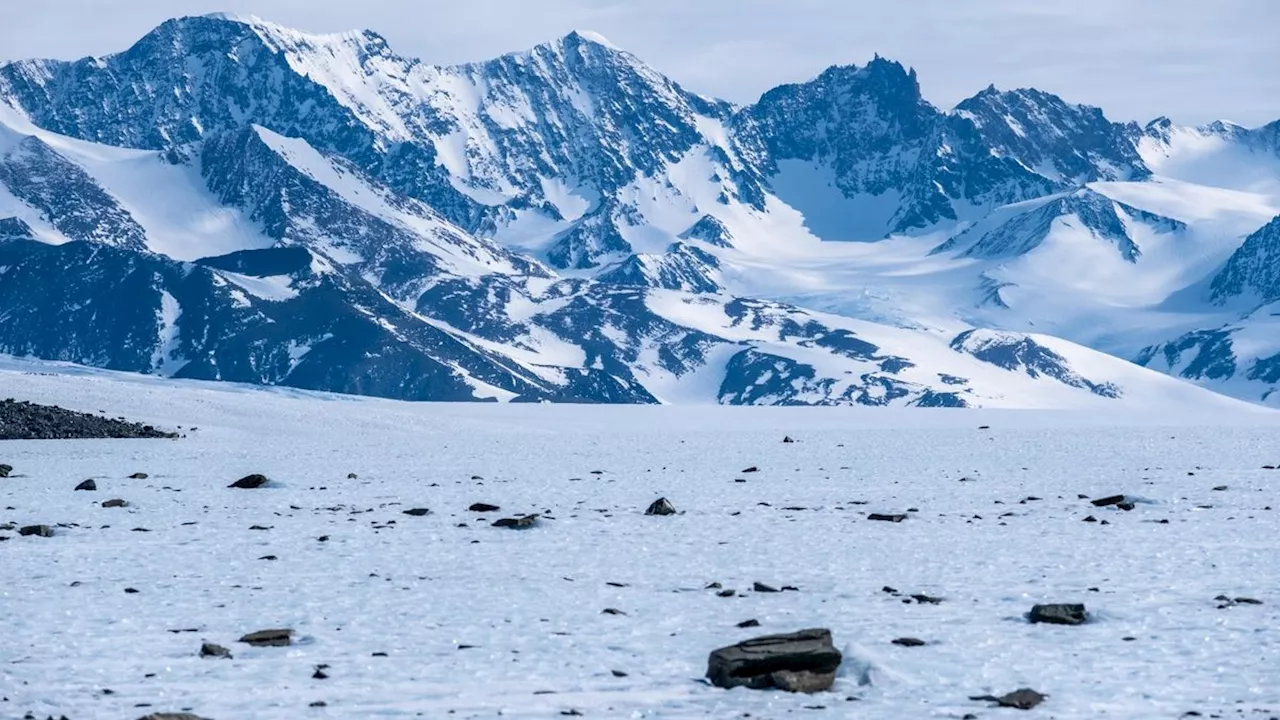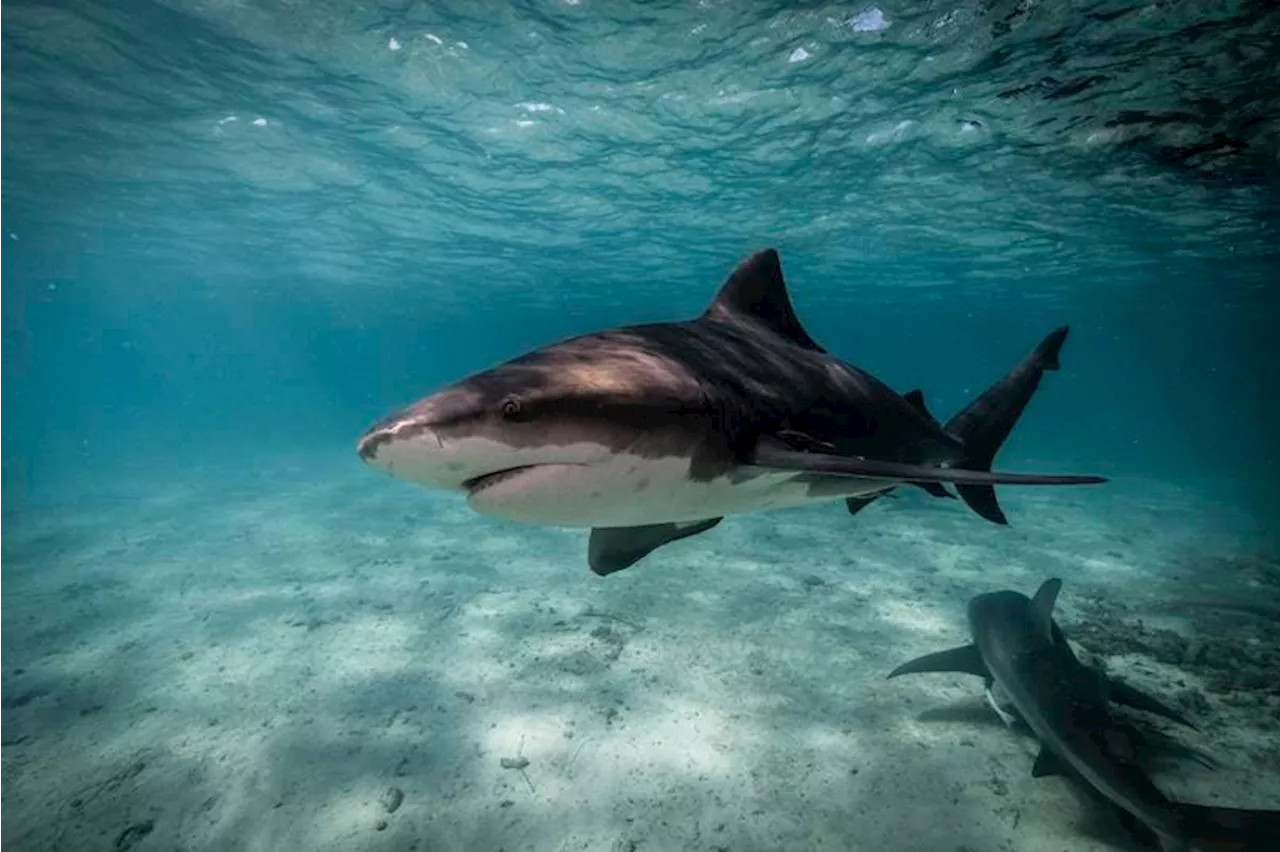Known as the 'Mother of Sharks,' I'm a Latina marine biologist who has a lot of labels: science communicator, conservationist, author, educator, podcaster, television presenter. You might have seen me on Discovery Channel's Shark Week, National Geographic, BBC Wildlife, heard my TEDx talk or read my Scholastic books.
has unveiled a startling correlation: as sea surface temperatures have steadily risen, so too have the numbers of juvenile bull shark s, leaving scientists and locals alike pondering the implications for their community.
Fed by three major rivers—the Mobile, Tensaw, and Blakeley—Mobile Bay boasts a rich mosaic of habitats, including marshes, mudflats, and submerged aquatic vegetation. Situated along the Gulf Coast of Alabama, this area serves as critical nurseries for a myriad of marine species, providing shelter, food, and breeding grounds for fish, crustaceans, and birds alike.
But as temperatures continue to climb, questions abound about what lies ahead for Mobile Bay’s burgeoning bull shark population. How will the bull shark population respond to further warming? Could the increasing presence of bull sharks signal a shift in local fishing dynamics? Might heightened interactions between humans and sharks become more commonplace?
The authors caution against complacency in this matter, urging for officials to take a proactive approach to understanding what is happening and mitigating any potential risks. While the increasing abundance of bull sharks could herald benefits for coastal ecosystems - such as regulating fish populations - it may also poses numerous challenges for industries like fishing, where sharks may intercept catches, alter the behavior of targeted species, or escalate human-shark encounters.
Alabama Bull Shark Sharks Shark Estuary Climate Change
Indonesia Berita Terbaru, Indonesia Berita utama
Similar News:Anda juga dapat membaca berita serupa dengan ini yang kami kumpulkan dari sumber berita lain.
 Shark conservation has been so successful that researchers are finding ways to curb human-shark interactionSharks off the Gulf of Mexico are increasingly engaging in depredation.
Shark conservation has been so successful that researchers are finding ways to curb human-shark interactionSharks off the Gulf of Mexico are increasingly engaging in depredation.
Baca lebih lajut »
 Making seagrass restoration more resistant to rising temperatures using generalist grassesNew research demonstrates that seagrass habitat restoration can be enhanced by including other grasses in addition to the declining or lost species and—ultimately—that restoration efforts must proactively select species that can withstand current and intensifying stressors driven by human activities and climate change.
Making seagrass restoration more resistant to rising temperatures using generalist grassesNew research demonstrates that seagrass habitat restoration can be enhanced by including other grasses in addition to the declining or lost species and—ultimately—that restoration efforts must proactively select species that can withstand current and intensifying stressors driven by human activities and climate change.
Baca lebih lajut »
 Rising temperatures are cooking bumblebee nests and killing larvaeClimate change could be fueling bumblebee population loss by making hives too hot to handle
Rising temperatures are cooking bumblebee nests and killing larvaeClimate change could be fueling bumblebee population loss by making hives too hot to handle
Baca lebih lajut »
![]() Tracking rising temperatures through the weekendHighs are back around 80º today, mid-80s return Thursday, through the weekend and into the start of next week.
Tracking rising temperatures through the weekendHighs are back around 80º today, mid-80s return Thursday, through the weekend and into the start of next week.
Baca lebih lajut »
 Rising temperatures upend migratory bird habitats in AlbaniaLong considered a Garden of Eden for migratory birds, the Vain Lagoon along the northern Albanian coast has been increasingly abandoned by a range of species as rising temperatures wreak havoc on wetlands across the country.
Rising temperatures upend migratory bird habitats in AlbaniaLong considered a Garden of Eden for migratory birds, the Vain Lagoon along the northern Albanian coast has been increasingly abandoned by a range of species as rising temperatures wreak havoc on wetlands across the country.
Baca lebih lajut »
 Rising temperatures threaten to bury Antarctic meteoritesA new study suggests that rising temperatures in Antarctica could cause pristine meteorites to sink further into the ice, potentially leading to their loss. Researchers argue that efforts to find these space rocks need to be intensified before they disappear for good.
Rising temperatures threaten to bury Antarctic meteoritesA new study suggests that rising temperatures in Antarctica could cause pristine meteorites to sink further into the ice, potentially leading to their loss. Researchers argue that efforts to find these space rocks need to be intensified before they disappear for good.
Baca lebih lajut »
